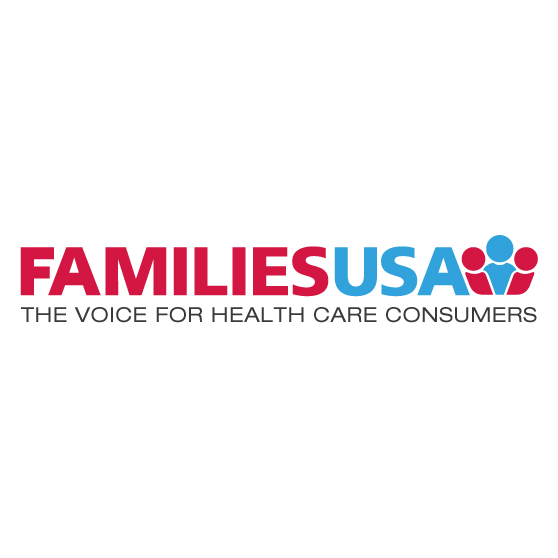
Congress’s Emerging Health Policy Conversation Offers Both Opportunities and Risks
By Stan Dorn,
08.17.2017
After the most recent collapse of Senate efforts to repeal the Affordable Care Act (ACA), many in Congress, on both sides of the aisle, see an opening for bipartisan health reform. Rather than take insurance away from tens of millions of Americans through sweeping legislation rushed through on a straight party-line vote, some lawmakers now propose to stabilize health insurance markets through careful, bipartisan policymaking. To help people who currently receive individual-market coverage, a well-constructed stabilization package could slow the rise of premiums, guarantee financial assistance, and increase the availability of meaningful health insurance options.
Unfortunately, despite these calls for reasonable, bipartisan legislation that would stabilize insurance markets, the ACA and Medicaid remain at risk.
Some policymakers continue to advocate major cuts to the ACA and Medicaid
Congress should not abandon bipartisan insurance stabilization in favor of yet another one-party attempt to take away health insurance and health care from millions of Americans.
One such attempt involves a proposal from Senators Graham (R-SC), Cassidy (R-LA), and Heller (R-NV). Their plan features a massive new block grant that would cut hundreds of billions of dollars from the ACA’s Medicaid expansion and from financial assistance that now helps low- and moderate-income working families buy private insurance.
The proposal also continues the core components of earlier Republican bills that were opposed by Families USA, along with a vast array of health care stakeholders and consumer groups. These components include
(1) Caps, block grants, and funding cuts for the basic, pre-ACA Medicaid program; and
(2) Repealing national requirements for essential health benefits and other consumer protections needed by people with preexisting conditions.
Even in the context of bipartisan insurance stabilization, ideas have been advanced that would harm consumers and that Congress should reject
Some of these ideas come from outlines released by various bipartisan groups in Congress:
- 1332 waivers: Congress should not give states new opportunities to raise consumers’ costs, cut consumers’ benefits, or take away consumers’ health insurance. States already have considerable flexibility to reconfigure federal resources, using Medicaid options and waivers as well as private-insurance waivers under ACA Section 1332 to tailor health coverage to fit unique circumstances of particular states. Congress should reject proposals to further expand Section 1332 waivers. Such proposals would almost certainly let states raise consumers’ health care costs, take away benefits, or reduce the number of people obtaining health insurance.
- Advance premium tax credits (APTCs): Congress should not penalize low- and middle-income taxpayers who claimed advance credits correctly but whose circumstances changed mid-year. Most people use their premium tax credits during the year, rather take them as a later refund on annual tax returns. Such APTCs go to insurance companies monthly, when premiums are due. APTCs are based on income projections for the year, verified using available data. If final, year-end income differs from projections, taxpayers either receive additional credits or pay more taxes to make up the difference. Today, tax liability is capped for low- and moderate-income taxpayers who correctly claimed APTCs during the year but then experienced surprise events, like a new job, that increased their annual income above expected levels.1 This cap lets them use APTCs to buy insurance with only limited risk of later tax penalties if their circumstances change mid-year. Now-abandoned Republican-only health-care-repeal legislation would have completely eliminated these protections. As part of bipartisan legislation, some continue to propose this step, which would impose enormous and unfair tax liability on taxpayers from working families who did everything right but whose situation changed during the year.2
- The risk of such penalties would cause many APTC-eligible consumers to drop coverage or avoid enrollment. This would undermine market stabilization by worsening the risk pool; those who become uninsured will disproportionately be consumers without serious health problems.
- Health industry tax breaks: Congress should not chip away at ACA funding for coverage expansion. Congress should not shrink the financing base for health coverage by giving tax breaks to health insurance companies and medical device manufacturers. Such funding cuts could lead to consumers losing coverage. Instead, policymakers should focus on increasing the number of Americans with health insurance, thus helping industry stakeholders get the benefit of their financial contributions.
- Employer responsibility: Congress should not let employers shift the cost of their workers’ health insurance to taxpayers. Under the ACA, large and medium-sized employers must repay the government when their workers use premium tax credits to buy individual coverage. Some of these companies do not offer health insurance at all. Others offer coverage in theory, but charge their workers so much or cover so few benefits that employees qualify for premium tax credits to purchase more affordable, comprehensive coverage on the individual market. Congress should not let these companies off the hook by scaling back employer coverage requirements, a step that would have the unanticipated consequence of ending employer-based insurance for numerous Americans.
- Medicaid: marketplace stabilization should not become a vehicle for cutting or restructuring the Medicaid program. Medicaid covers children, pregnant women, people with disabilities, seniors, low-wage workers, and other low-income Americans. Cutting or restructuring Medicaid has nothing to do with strengthening individual insurance markets. In fact, Medicaid cuts can undermine market stability. For example, some states’ refusal to expand Medicaid as allowed by the ACA increased risk levels and premiums in the individual market.3
1The Internal Revenue Service (IRS) applies these caps without examining the circumstances under which taxpayers claimed APTCs. Health insurance marketplaces are responsible for verifying APTC beneficiaries’ income projections. If APTC applicants make fraudulent claims, they are subject to criminal and civil penalties.
2For example, consider a married couple with one child and $29,000 in income from one spouse, whose employer does not offer insurance. The family lives at 144 percent of the federal poverty level (FPL) and qualifies for PTCs. Suppose the other spouse gets a job in September that offers health insurance. The family terminates marketplace coverage and ends APTCs starting in October. The family’s income for the year turns out to be $38,000, or 189 percent of FPL. Under current law, the family has a $600 increase in tax liability. That is the maximum amount the IRS can demand from married filers with incomes below 200 percent of FPL. Under Republican proposals to eliminate all limitations on such IRS demands, the family would owe $1,200 in increased taxes, even though it did everything right: the family estimated its income accurately before the second spouse got a new job; and when its circumstances changed because of the new job, the family immediately ended its APTCs and all marketplace coverage.
3Unlike the concerns listed earlier in this section, Medicaid cuts and restructuring have not been included in any publicly-released bipartisan proposals.




